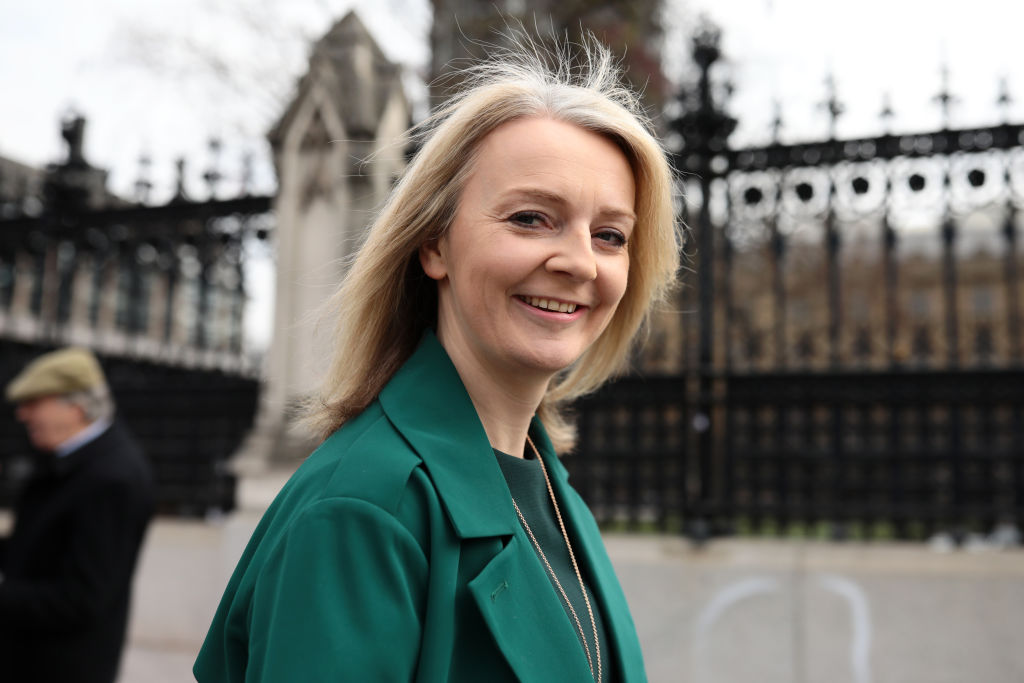As the big winner of the reshuffle, Liz Truss’s appointment as Foreign Secretary set the cat among the pigeons. Truss is the first Conservative woman to take on the brief and cuts a rather different figure to her predecessor Dominic Raab who was, by comparison, publicity shy. Since her promotion, there has been a non-stop stream of Twitter and Instagram posts documenting her meetings in New York, Mexico and Westminster. Today in Manchester, Truss gave her first speech to a domestic audience on what she wants to achieve.
Truss is the first conservative woman to take on the brief and cuts a rather different figure to her predecessor Dominic Raab
The former International Trade Secretary was typically optimistic, saying she wanted to make sure Britain is ‘more competitive, bolder and more forward-leaning than any other country on earth’. She spoke of her desire to bring more countries into the liberal democratic sphere of influence by building strong ‘economic partnerships’ and thereby building this network of liberty’. Truss found time to invoke Thatcher – quoting her Guildhall speech after the fall of the Berlin Wall in 1989 when Thatcher said ‘when people are free to choose, they choose freedom’.
It was clear from Truss’s comments that despite leaving the Department for International Trade, she still sees trade as a key part of her brief. She said: ‘We want to trade with and invest in more countries to our mutual benefit – which leads to freer and wealthier societies aligned to the cause of liberty, spreading the human rights and values we believe in.’ She added that trade with China was something the UK had to do – but in order for it to happen, ‘China needs to play by the rules’.
What was revealing from the speech is who Truss views as the UK’s most important allies. She mentioned Aukus – the new pact between the UK, US and Australia – three times and also included Japan, India, Israel, Mexico, the United States, the Baltic states and the Gulf states in her list of allies and friends to the UK. While Truss also spoke about the G7 and Nato, she did not mention Europe – or the EU – by name once. This shows that both the UK and EU have not yet worked out how to navigate their post-Brexit relationship.
As for Truss’s own ambitions, there were some reports at the time of her appointment that this could be a ploy by Johnson to keep his potential rival overseas and busy. The Foreign Office brief can mean the Foreign Secretary is out of the picture and away from key debates back home. This is why one of the most interesting lines of the speech was Truss explaining that the work she will be doing as Foreign Secretary amounts to ‘banging the drum for Britain abroad to deliver for people here at home’.







Comments